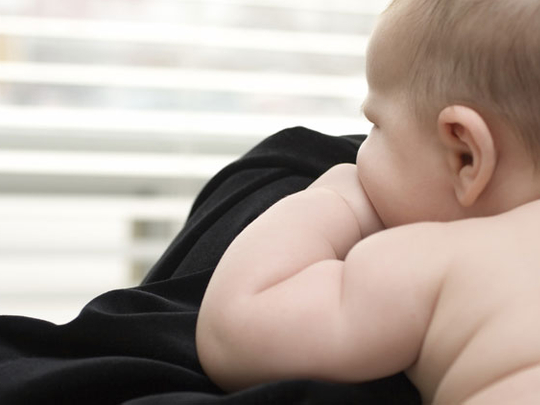
London: The number of women giving birth to babies that weigh more than 11 pounds has soared by 50 per cent over the last four years.
These so-called "sumo" infants can be more costly for the NHS to deliver and can suffer from ailments associated with their size.
The rise in big babies has been put down to the nation's obesity crisis because larger mothers often give birth to heavier children.
Experts warned on Friday of an "epidemic of fat mothers" which is increasing the risk of heavier babies, who are themselves more likely to fall victim to heart disease and stroke.
Last year there were a total of 1,170 mothers who gave birth to a baby that tipped the scales at 11 pounds or more. Four years ago, that figure was 791.
Big babies are generally considered to be a sign that the infant is healthy but an overly large child can be caused by obesity in the mother or an illness.
Last month Elaine Martin, 32, gave birth to Britain's biggest ever baby girl in Ipswich, with "little" Niamh weighing in at 14 pounds and 4 ounces.
The rise in the average birth weight of babies since the 1950s is explained mainly by an improvement in diet. The current average is 7 pounds 8 ounces for boys and 7 pounds 4 ounces for girls.
But part of the rise in heavier babies is down to the fact that their mothers are heavier too. The latest figures show that almost half of women of child-bearing age in Britain are overweight or obese.
Medics say that bigger babies are at a high risk of shoulder dystocia, where the shoulder gets stuck during the delivery. It is a potentially life-threatening condition, which can compress the umbilical cord or put pressure on the baby's neck, leaving it dangerously starved of oxygen.
In extreme cases, it is necessary for the obstetrician to break the baby's collarbone in order to deliver them alive.










_resources1_16a30b3523c_small.jpg)

